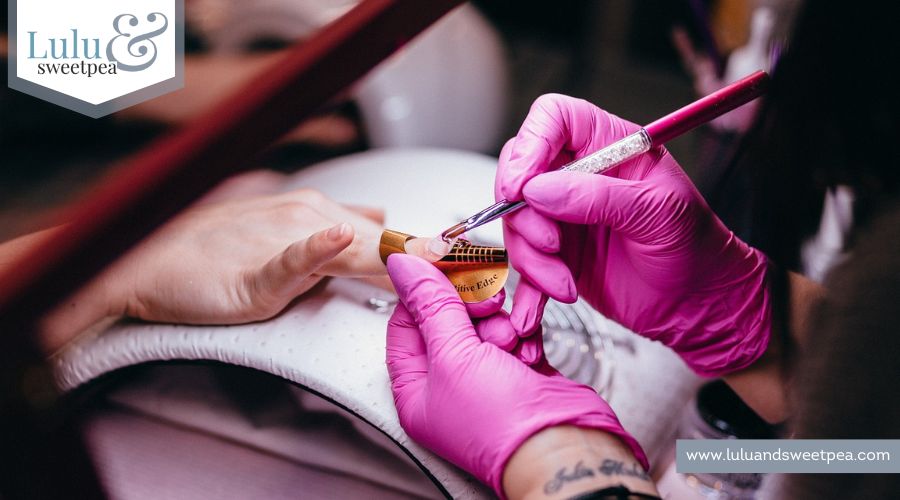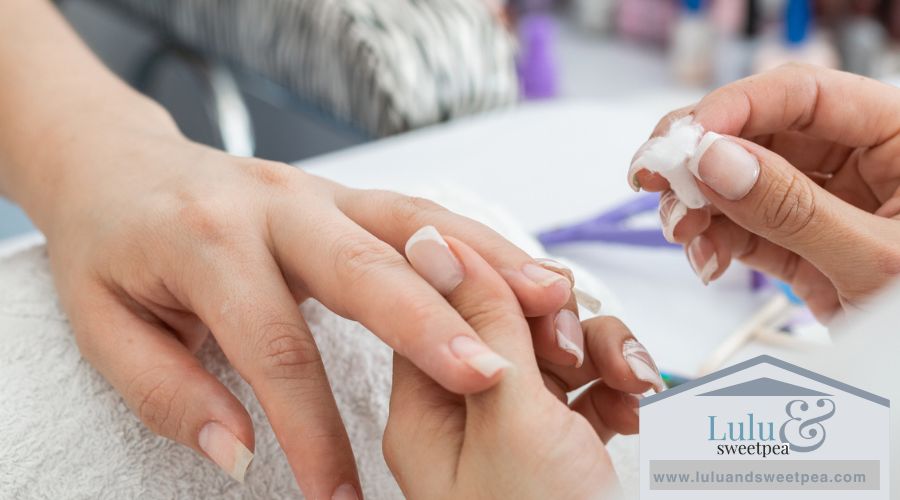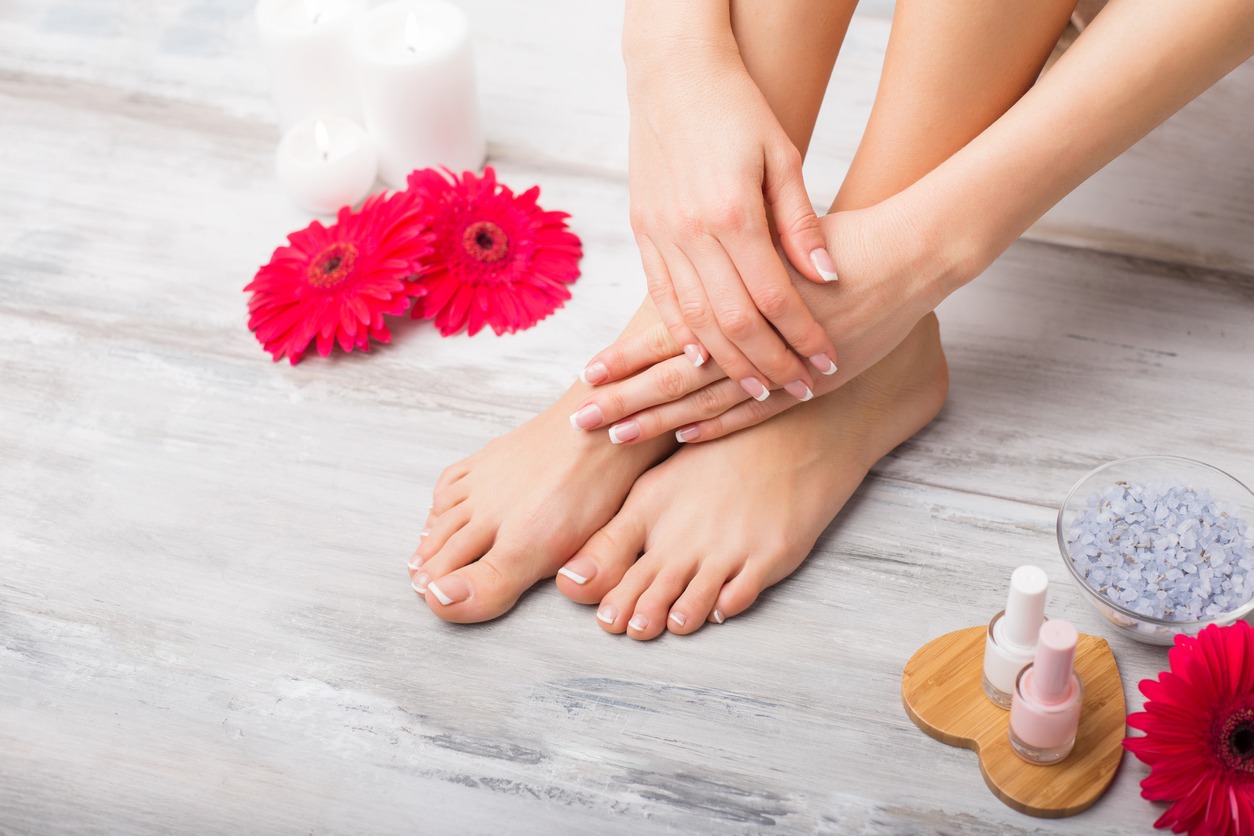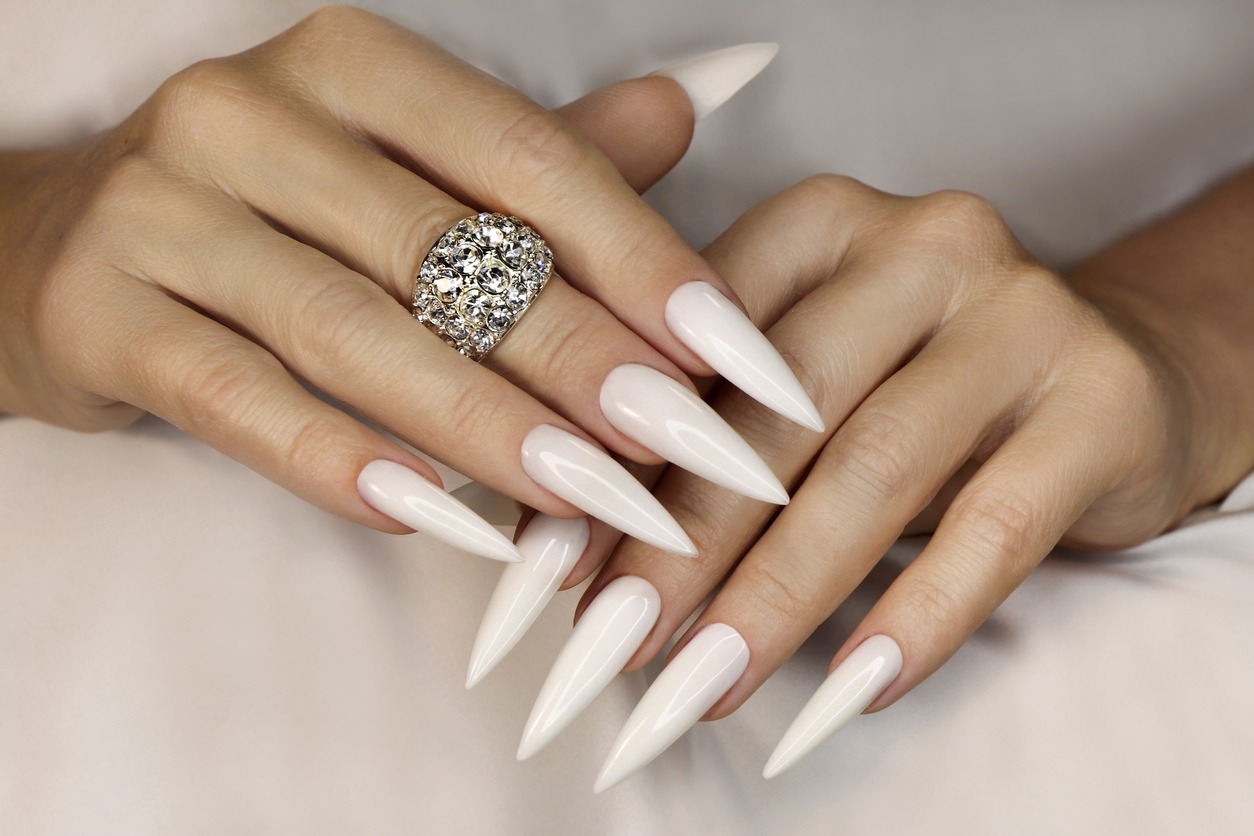Top 10 Tips for Keeping Your Nails Healthy and Strong
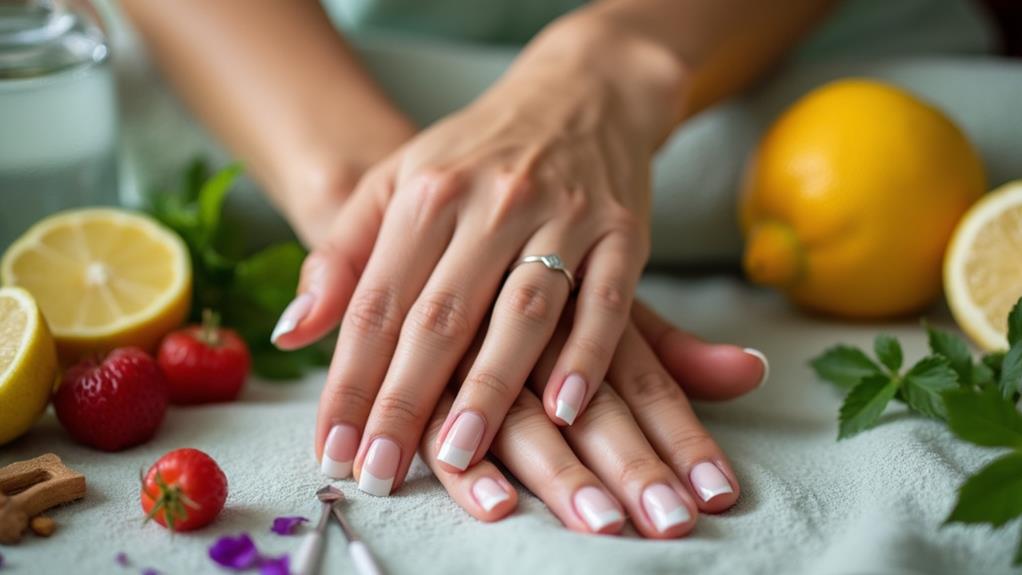
Maintaining healthy nails isn't just about aesthetics; it involves comprehensive care. Start with proper hygiene, including regular washing and trimming. Daily moisturizing is essential to prevent dryness and brittleness.
A balanced diet rich in biotin, protein, and zinc supports nail health. Protect your nails by wearing gloves during chores and applying sunscreen. Avoid harmful habits and monitor for any changes in your nails. Follow these guidelines for strong, healthy nails.
Want to learn more?
Maintain Nail Hygiene
Maintaining nail hygiene is crucial for keeping your nails strong and healthy. Start by always keeping your nails clean and dry, as this simple practice can prevent bacterial and fungal infections. Make it a habit to wash your hands regularly and thoroughly dry your nails afterward.
Regularly trimming your nails is another key aspect of nail hygiene. Use sharp scissors or clippers to cut them straight across, which helps maintain their shape and reduces the risk of breakage. This practice keeps your nails neat and minimizes areas where bacteria can hide, thereby preventing infections.
Moisturizing your nails and cuticles with a good hand lotion is also essential. Hydrated nails are less likely to become brittle and break, and moisturizing promotes overall nail health and growth.
Avoid habits like nail biting and cuticle removal, as these can damage the nail bed and increase the risk of infections. Protecting your cuticles serves as a natural barrier against harmful bacteria.
Trim and Shape Regularly
Regularly trimming and shaping your nails every 1-2 weeks is crucial for maintaining their strength and preventing breakage. By adhering to a consistent schedule, you can promote overall nail health and avoid common issues like splitting or tearing. Use sharp scissors or clippers, as dull tools can cause damage.
When trimming fingernails, cut them straight across to reduce the risk of ingrown nails, which can be painful and lead to infections. After trimming, use an emery board to file your nails in one direction. This technique prevents weakening the nail structure and helps achieve a smooth edge, enhancing nail health.
Properly shaping toenails is equally important. Trim them straight across to avoid discomfort and potential ingrown toenails. Properly shaped nails not only look better but also prevent issues arising from improper trimming habits.
Incorporate these practices into your routine to keep your nails strong and healthy. Regular maintenance ensures you won't have to deal with painful and potentially serious nail conditions, allowing you to enjoy healthy nails every day.
Moisturize Daily
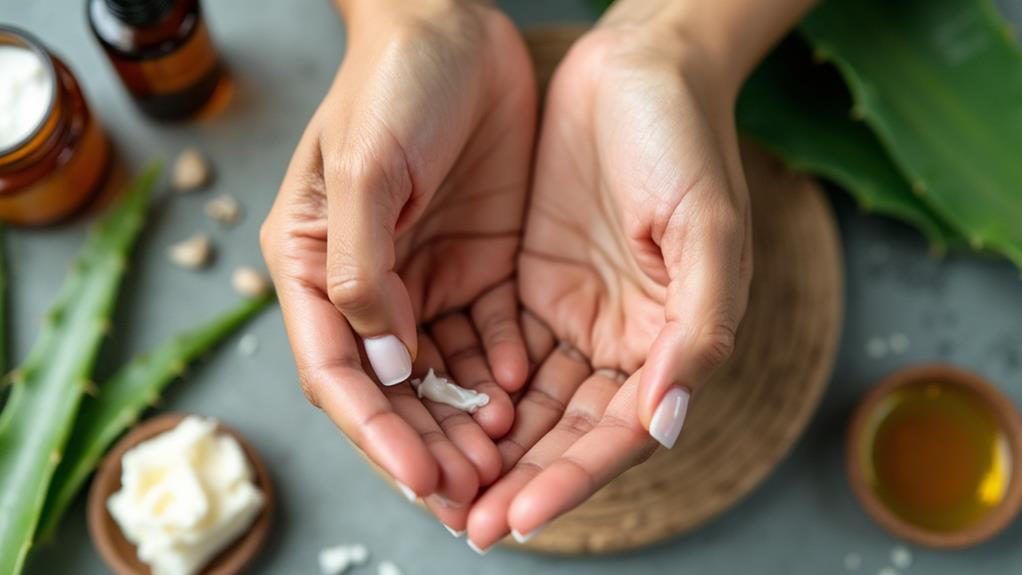
Moisturizing your nails and cuticles daily is crucial for preventing dryness and brittleness. Hydrated nails are essential for maintaining their strength and health. Applying a quality hand lotion or cuticle oil can make a significant difference.
It's important to reapply moisturizer after washing your hands or using hand sanitizer to combat the drying effects of alcohol-based products.
Incorporating a good hand lotion into your routine can prevent your nails from becoming dry and prone to cracking. Massaging cuticle oil into your nails not only feels soothing but also stimulates blood flow and improves nutrient absorption, promoting healthier nail growth.
This simple step can lead to visibly stronger, more resilient nails over time. Consistency is key. Make it a habit to moisturize your nails and cuticles daily, and you'll likely notice an improvement in their appearance and strength.
Keep a small bottle of hand lotion or cuticle oil in your bag or at your desk for easy application throughout the day. By prioritizing nail hydration, you're laying the foundation for healthier, more beautiful nails.
Eat a Balanced Diet
To maintain healthy, strong nails, consume a balanced diet rich in essential nutrients. Key components include biotin, protein, omega-3 fatty acids, and zinc for nail strength, growth, and hydration. Additionally, staying well-hydrated by drinking plenty of water daily helps prevent dryness and brittleness.
Essential Nutrients for Nails
A balanced diet is essential for maintaining nail health. To keep your nails healthy and strong, focus on consuming key nutrients such as biotin, protein, and zinc.
Biotin, found in foods like eggs, nuts, and whole grains, is crucial for enhancing nail strength and growth. Studies show a 91% improvement in nail thickness among those taking biotin supplements.
Protein supports keratin production, the structural basis of your nails. Including lean meats, fish, and legumes in your diet can significantly benefit your nail health. Without adequate protein, your nails may become weak and brittle.
Zinc is vital for maintaining nail integrity. Foods rich in zinc, like oysters, beef, and pumpkin seeds, can prevent brittleness and promote healthy nail growth. A zinc deficiency can lead to various nail problems, so it's important to ensure adequate intake of this nutrient.
For healthier nails, incorporate these foods into your diet:
- Eggs, nuts, and whole grains for biotin.
- Lean meats, fish, and legumes for protein.
- Oysters, beef, and pumpkin seeds for zinc.
Hydration and Nail Health
Staying hydrated is essential for maintaining healthy nails. Adequate hydration helps keep nails from becoming brittle and breaking. Dehydration can cause dry, brittle nails, affecting both nail and overall health. Drinking sufficient water daily ensures your nails retain moisture and strength.
A balanced diet also significantly promotes nail health. Consuming a variety of nutrient-dense foods can make a considerable difference.
Biotin, or vitamin H (B7), is crucial for nail strength and growth. Research indicates that biotin supplementation can enhance nail thickness by up to 91%.
Omega-3 fatty acids, found in fish and flaxseeds, help maintain nail moisture, preventing brittleness and breakage.
Zinc is equally important; a deficiency can lead to brittle nails and slow growth. Including zinc-rich foods such as nuts, seeds, and whole grains in your diet supports healthier nails.
Protein and Keratin Production
Your nails' strength and durability heavily rely on protein, the building block of keratin. To keep your nails healthy and robust, incorporating a balanced diet rich in protein is essential. Keratin, the key structural component of your nails, promotes their strength and resilience. Foods like lean meats, fish, eggs, and legumes provide the amino acids necessary for keratin synthesis, supporting overall nail health.
In addition to protein, biotin plays a significant role in improving nail strength. Consuming biotin-rich foods such as nuts, seeds, and whole grains can increase nail thickness and reduce brittleness. Studies show that biotin supplementation can make a noticeable difference in nail health.
To maintain healthy nails through diet, consider these tips:
- Lean meats, fish, and eggs: These protein-rich foods aid in keratin production.
- Nuts, seeds, and whole grains: Rich in biotin, they boost nail strength.
- Fatty fish and flaxseeds: High in omega-3 fatty acids, they help maintain nail moisture and elasticity.
Additionally, deficiencies in key nutrients like zinc and vitamin D can negatively impact keratin production and overall nail health.
Prioritize a varied and nutrient-dense diet for optimal results.
Use Protective Measures

Protecting your nails is essential for maintaining their health and strength. Wearing gloves during household chores is one effective way to safeguard your nails. Gloves serve as a barrier, preventing damage and limiting exposure to harsh chemicals that can weaken them.
Whether you're washing dishes or cleaning, gloves protect your nails from prolonged water exposure, which can cause swelling and brittleness.
It's also crucial to avoid using your nails as tools. Opening packages or prying things apart with your nails can lead to breakage and damage. Instead, use the appropriate tools for these tasks.
Applying a base coat before nail polish is another protective measure. This step prevents staining and helps maintain the strength and integrity of your nails. A base coat acts as a shield, reducing the risk of polish-related damage.
Lastly, regularly moisturizing your nails and cuticles with oils or creams is important. Keeping your nails hydrated prevents dryness, which is vital for healthy nail growth.
Incorporating these protective measures into your routine will ensure your nails stay strong and healthy.
Choose Quality Products
Choosing quality products for nail care is essential for maintaining their health and appearance. Start with nontoxic nail polishes free from harsh chemicals like formaldehyde and toluene, which can cause significant damage and dryness.
Opt for acetone-free nail polish removers to avoid brittleness and dehydration. Investing in a good nail hardener is also wise. Choose formulas designed to strengthen nails without causing excessive brittleness, and use them sparingly to prevent potential damage.
For your cuticles, select oils packed with nourishing ingredients like vitamin E and jojoba oil to keep them healthy and prevent hangnails.
High-quality manicure tools are a must. Tools made from stainless steel or other durable materials ensure effective nail care and hygiene.
- Nontoxic Nail Polishes: Avoid harmful chemicals like formaldehyde and toluene.
- Acetone-Free Removers: Prevent brittleness and dehydration.
- Cuticle Oils: Look for nourishing ingredients such as vitamin E and jojoba oil.
Avoid Harmful Habits
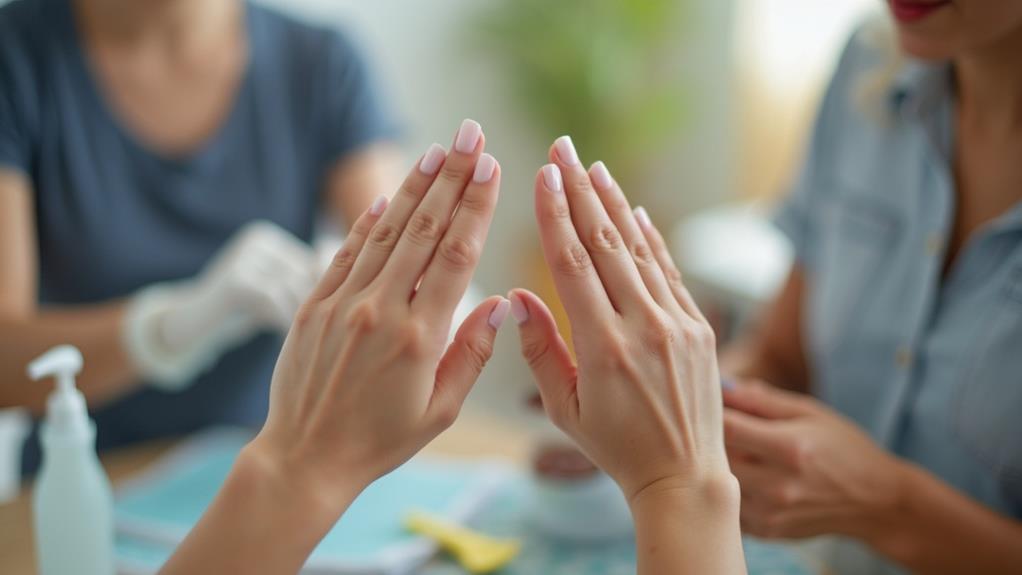
To keep your nails healthy, avoid biting them and limit the use of harsh chemicals like acetone. Excessive filing can also weaken your nails, so be gentle and avoid overdoing it.
No Nail Biting
Nail biting often damages the nail bed, increasing the risk of infections and making nails more prone to breakage. This habit compromises nail care and creates a cycle of unhealthy behavior linked to stress, anxiety, or boredom. Breaking this habit is crucial for maintaining healthy nails and overall well-being.
To combat nail biting, consider these effective strategies:
- Keep Nails Trimmed: Regularly trimming your nails reduces hangnails and rough edges, minimizing the temptation to bite.
- Use Bitter-Tasting Nail Polish: Applying a specially formulated, bitter-tasting nail polish can deter you from biting and help break the cycle.
- Stress Management Techniques: Engage in activities like meditation or exercise to reduce stress and anxiety, which are common triggers for nail biting.
A study in the Journal of the American Academy of Dermatology found that nail biting is most common among children and adolescents but can persist into adulthood, affecting up to 30% of the population.
Maintaining a clean and neat nail appearance reduces the urge to bite and promotes healthier nail growth. By addressing underlying causes and adopting these strategies, you can greatly lower your risk of infections and enjoy strong, healthy nails.
Limit Chemical Exposure
Limiting chemical exposure is crucial for maintaining healthy and strong nails. To protect your nails from damage, minimize contact with harsh substances. When cleaning or doing dishes, always wear gloves to prevent prolonged exposure to chemicals that can weaken and damage your nails.
Opt for nontoxic nail polishes and acetone-free removers to reduce dryness and prevent nail damage from harmful ingredients. Frequent use of strong chemicals in manicures can lead to brittle nails and increase the risk of chronic nail bed infections. Give your nails a break from these treatments whenever possible.
Be cautious with alcohol-based hand sanitizers, as they can strip moisture from your nails and cuticles, leading to brittleness. Instead, use moisturizing hand sanitizers or wash your hands with gentle soap and water.
Avoid Excessive Filing
Protecting your nails from chemicals is crucial, but avoiding excessive filing is equally important for nail care. Over-filing can weaken nails, making them susceptible to splits and breaks. To minimize damage, file only when necessary and always in one direction to maintain the integrity of your nails and prevent fraying and splitting.
Use a gentle, high-quality emery board instead of metal files, as metal files can be harsh and cause more harm. Filing your nails once a week or as needed is sufficient.
Always ensure your nails are dry when filing because wet nails are more prone to bending and breaking, increasing the risk of damage.
Regularly moisturizing your nails and cuticles is also essential. Well-moisturized nails are stronger and less susceptible to damage during filing. Maintaining nail strength involves not just avoiding excessive filing but also keeping your nails hydrated and healthy.
Key Tips:
- Use a gentle emery board: Reduces the risk of fraying and splitting.
- File in one direction: Prevents weakening and damage.
- Moisturize nails regularly: Keeps them strong and resilient.
Monitor for Problems
Regularly monitoring your nails can provide important insights into your overall health. Look for changes in color, texture, or thickness, as these can indicate underlying conditions or nutritional deficiencies.
Swelling, pain, or separation of the nail from the skin may suggest infection or trauma requiring professional evaluation. Additionally, dark streaks or unusual growth patterns could be early warning signs of serious issues like melanoma.
Persistent nail problems such as brittleness or frequent hangnails shouldn't be ignored. If these issues persist despite at-home care, consulting a dermatologist is essential. They can help identify any underlying conditions.
Keeping a record of changes in your nails over time can be valuable during medical consultations, aiding in the diagnosis of potential health concerns.
Adjust to Seasons

Adjust your nail care routine with the changing seasons to maintain healthy nails year-round.
In winter, use heavier moisturizers to combat dryness.
In summer, protect your nails from UV damage by applying sunscreen to your hands.
Be mindful of environmental factors like humidity and chlorine exposure, and adjust your care routine accordingly to maintain nail strength and hydration.
Seasonal Moisturizing Routines
Adapting your nail care routine to seasonal changes is crucial for maintaining healthy, strong nails year-round.
Seasonal fluctuations can significantly affect nail health, so it's essential to adjust your moisturization and hydration strategies accordingly.
In winter, cold air can deplete moisture from your nails and skin, leading to dryness and brittleness.
To counteract this, use heavier moisturizers and cuticle oils. Regular application of these products will help retain moisture and improve overall nail health.
During summer, increased humidity allows for the use of lighter moisturizers while still keeping nails hydrated.
However, stay vigilant and adjust your routine if you notice any signs of dryness or brittleness. In such cases, revert to a more intensive moisturizing regimen.
Incorporate nourishing nail soaks with oils, such as olive oil, during drier seasons to replenish moisture and strengthen your nails.
Monitoring your nails' response to seasonal changes will help you make necessary adjustments to keep them in optimal condition.
- Winter: Use heavy moisturizers and cuticle oils.
- Summer: Opt for lighter moisturizers but remain observant.
- Dry Seasons: Regular nail soaks with nourishing oils.
Sun Protection Tips
While keeping your nails moisturized year-round is essential, safeguarding them from the sun's harmful rays is equally important. Applying a broad-spectrum sunscreen with at least SPF 30 on your hands and nails protects them from UV damage, especially during peak sun exposure in the summer. Nail polishes with UV filters provide an additional protective layer, preventing discoloration and damage.
When outdoors, wearing gloves shields your nails from direct sunlight and reduces the risk of sunburn on the surrounding skin. Remember that reflective surfaces like water and sand can intensify UV rays, so reapply sunscreen frequently to ensure continued protection.
Here's a quick reference to help you keep your nails safe from the sun:
| Protection Method | Benefit |
|---|---|
| SPF 30 Sunscreen | Shields nails from UV damage |
| UV Filter Nail Polish | Adds a protective layer |
| Wearing Gloves Outdoors | Reduces direct sun exposure |
| Frequent Sunscreen Reapplication | Counters amplified UV rays from reflections |
Cold Weather Care
When temperatures drop, it's essential to adjust your nail care routine to combat the harsh effects of cold weather. The colder months can make your nails brittle and prone to breakage, so it's crucial to adopt specific care strategies to keep them healthy and strong.
First, ensure your nails and cuticles are well-moisturized. The lower humidity levels in winter can dry out your skin, so apply a thick hand cream or cuticle oil regularly. This helps prevent dryness and cracking, keeping your nails flexible and resilient.
Next, always wear gloves when you're outside. Gloves protect your nails from harsh winds and cold temperatures, which can cause brittleness. Additionally, they help retain the moisture from your creams and oils.
Lastly, consider trimming your nails shorter during the winter months. Shorter nails are less likely to snag and break, reducing the risk of damage.
Quick Tips for Winter Nail Care:
- Moisturize regularly with thick hand creams or cuticle oils.
- Wear gloves to shield your nails from cold and wind.
- Trim nails shorter to reduce breakage risks.
Seek Professional Help
For persistent nail problems, consulting a board-certified dermatologist can be transformative. If you notice serious nail issues like discoloration, changes in texture, or persistent pain, it's crucial to seek professional advice. These symptoms might indicate underlying health concerns that require prompt attention. Early detection can lead to effective treatments and prevent more severe complications.
Regular check-ups with a healthcare provider are essential for maintaining nail health. They can monitor any changes in your nails' color, texture, or shape and intervene timely. Dermatologists are equipped to handle conditions that home remedies mightn't address, such as nail infections or ingrown nails. Specialized treatments provided by professionals can significantly enhance your nail care routine.
When visiting nail salons, bring your personal tools to minimize the risk of infections. Discuss hygiene practices with your nail technician to ensure your safety.
If you experience symptoms like swelling, pain, or nail separation, seek professional advice immediately, as these could require urgent medical attention.
Conclusion
To keep your nails healthy and strong, ensure you maintain good hygiene, trim and shape them regularly, and moisturize daily. Eat a balanced diet and use protective measures to shield your nails from damage. Avoid harmful habits like biting your nails and stay vigilant for any issues. Adjust your care routine with the seasons and seek professional help if needed. Your nails will thank you!

